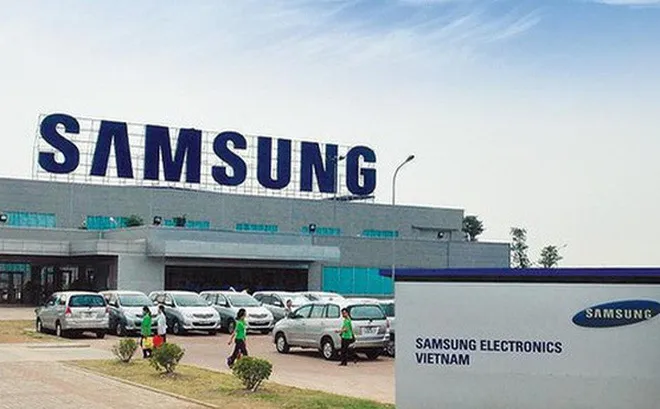
In an interview with Saigon Investment, Mr. NGUYỄN VĂN TOÀN, Vice Chairman of the Association of Foreign Direct Investment (FDI), spoke of the pressure to attract foreign investments when the competitive attraction of tax incentives will no longer be there.
JOURNALIST: - Sir, why was FDI inflow to Vietnam in January and February lower than it was last year?
Mr. NGUYỄN VĂN TOÀN: - It is true that in the first two months of 2023, both the number of new projects and registered capital decreased. However, the disbursement of ongoing projects have increased. This indicates that in 2023, FDI inflow will have both a positive and negative effect and there will be no sudden changes.
The first reason is the trend of global FDI returning to their home countries, which has been taking place in recent years. The second reason is that the governments of many countries have introduced many preferential policies to encourage enterprises to invest within the country and limit moving capital abroad. The third reason is that there are many uncertainties in world geopolitics, such as those related to the ongoing war between Russia and Ukraine, relations between Japan and South Korea, and sudden disruptions occurring in North Korea. Besides this, developed countries and high-tech countries have increased many barriers to prevent and limit technology exports.
For Vietnam, FDI inflow in 2023 was also affected by India and Indonesia. India is a large economy with good technology, a better serving workforce than Vietnam, and a much advanced and effective investment environment. Indonesia is an economy similar to Vietnam, but bigger in scale and evolving very quickly, with strong support of the Government. Indonesia has emerged as a leading country of ASEAN in terms of FDI investments. Besides, their participation in the global minimum tax has had a positive impact, but it also affects FDI investment in Vietnam.
- Sir, recently there has been talk of Samsung moving production of high-end smartphone Galaxy S23 from Vietnam to India. In an environment of such fierce competition to attract FDI investment, should we remain wary of such a shift?
- I have no official information about Samsung moving some production out of Vietnam. Samsung investment in India has been their long-standing plan. As far as I know, Vietnam is still the production base of this company, and they are still benefiting from investing in Vietnam. At a meeting in December 2022, Mr. Han Jong-Hee, Vice Chairman and General Director of Samsung Electronics, said that Samsung is planning to increase investment capital in Vietnam to USD 20 bln in the near future. Samsung has very clear goals and will effectively implement projects in Vietnam. Currently, the company is investing around USD 18 bln in Vietnam.
On 10 January at a meeting with Mr. Hồ Đức Phớc, Minister of Finance, Mr. Park Hark Kyu, General Director of Samsung Electronics, affirmed that Vietnam is an important partner and the largest global production base for Samsung. He believes that Samsung subsidiaries and other global businesses will continue to invest in expansion and development projects in Vietnam.
However, the purpose of investment is profit and growth. When profits are higher elsewhere, the possibility of a possible move is also not surprising. Not only in Vietnam but in other tax competitive countries, when incentives reduce then companies can consider switching the balance for profits. Therefore, Vietnam needs to have appropriate policies to keep investment capital inflow within the country.
- Sir, as you mentioned, the application of global minimum tax will directly affect many FDI enterprises in Vietnam, as well as affect the investment environment, so how can we retain our investors?
- Once the global minimum tax rate is officially introduced, FDI companies with a turnover of USD 750 mln or more will have to pay income tax at 15 per cent. If these businesses are paying less than 15 per cent tax, then they will have to pay the difference in their country of residence where the company has its headquarters. In Vietnam, FDI enterprises are paying an income tax of about 12.3 per cent, lower than the general tax rate of 20 per cent. Many FDI enterprises even enjoy tax incentives, so they only pay 2.75 per cent to 7 per cent. Therefore, when implementing a global minimum tax, many companies will lose huge profits and investments will no longer be available.
However, in Vietnam, the number of companies investing from USD 750 mln or more are not many in number. This is an opportunity for Vietnam to change and reform the tax system in a way that is consistent with international practices and standards, especially by helping in increase of tax revenue and limiting tax evasion and transfer pricing of multinational corporations.
The Government has already foreseen the effects of applying this tax. In August 2022, the Prime Minister set up a special working group to study and propose solutions related to the global minimum tax rate. In February of this year, the Ministry of Finance established the Prime Minister's Special Working Group to study and propose solutions related to the global minimum tax rate.
Many proposals and solutions have been raised and are currently being drafted. Applying this tax will help Vietnam integrate better and compete on real ground, not just in a tax competition. Vietnam will offer a more transparent and equal environment, and it will also force Vietnam to improve its entire business environment as well.
- Thank you very much.




















